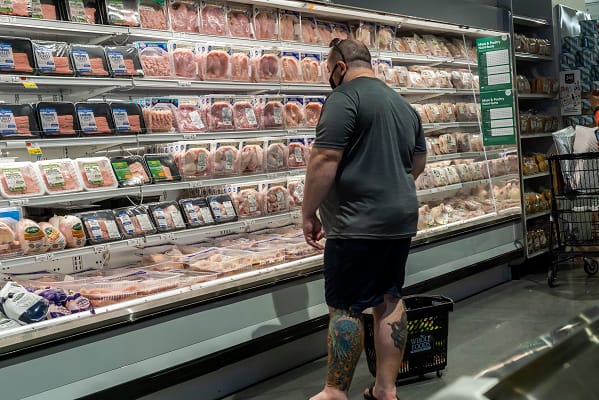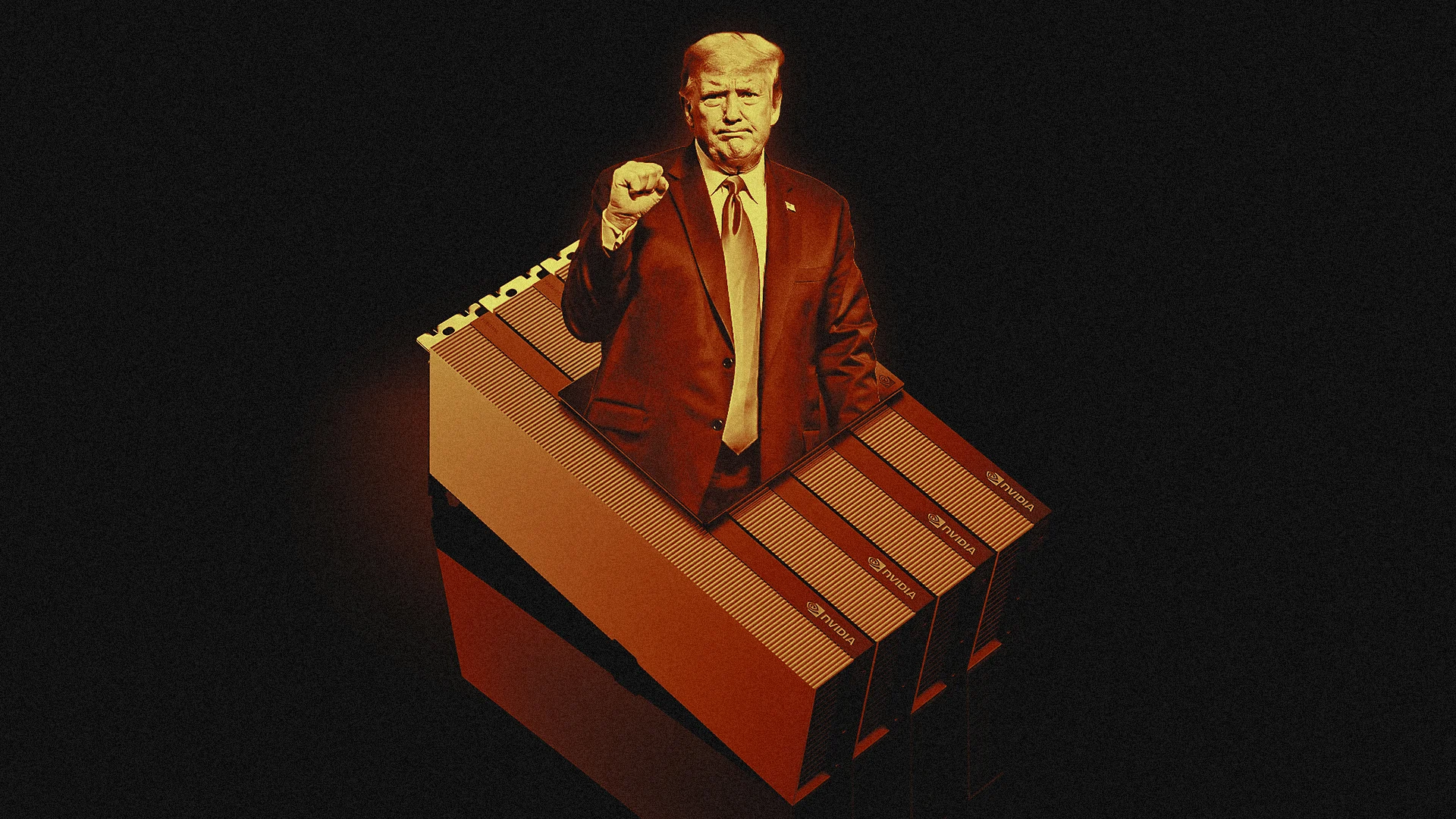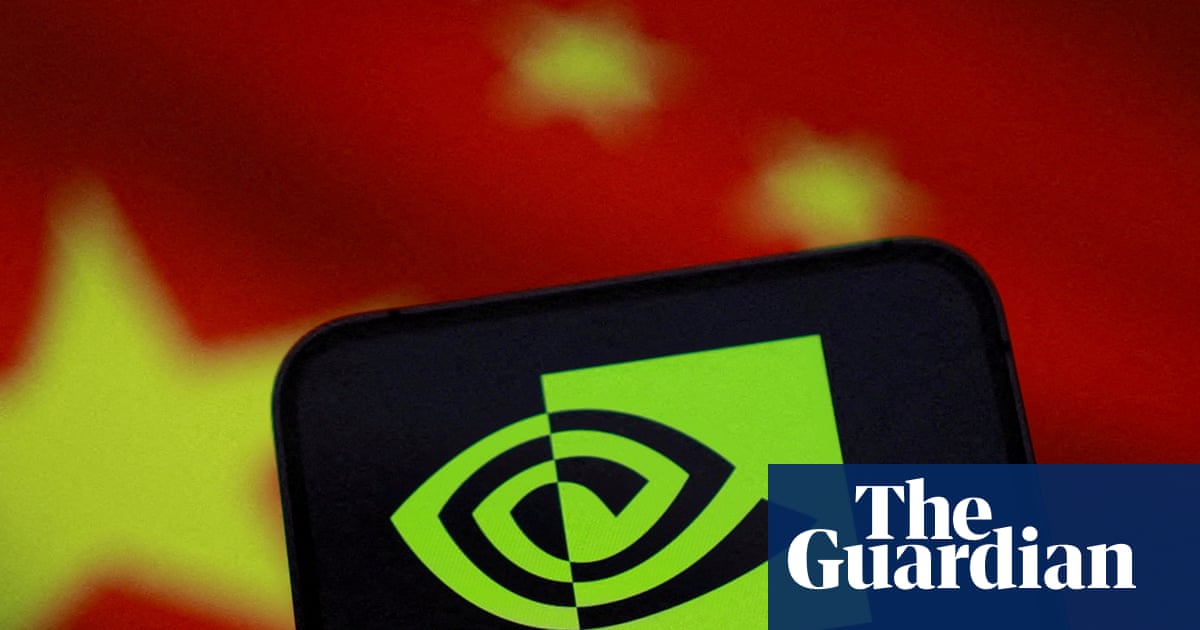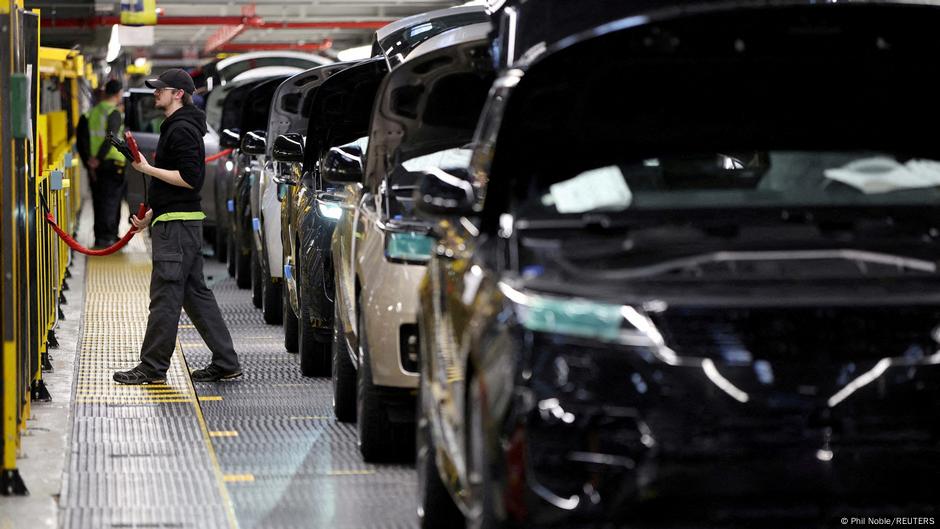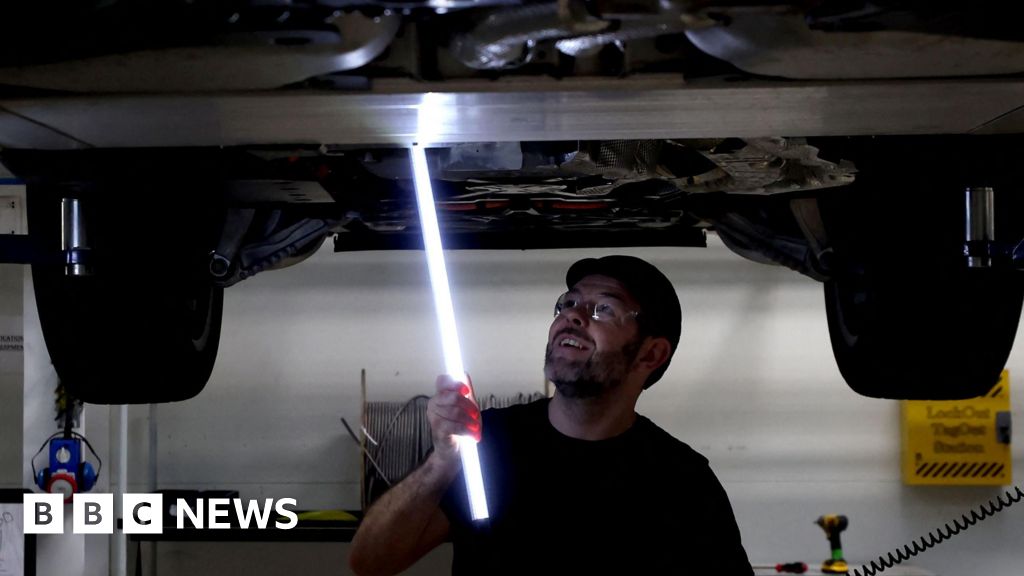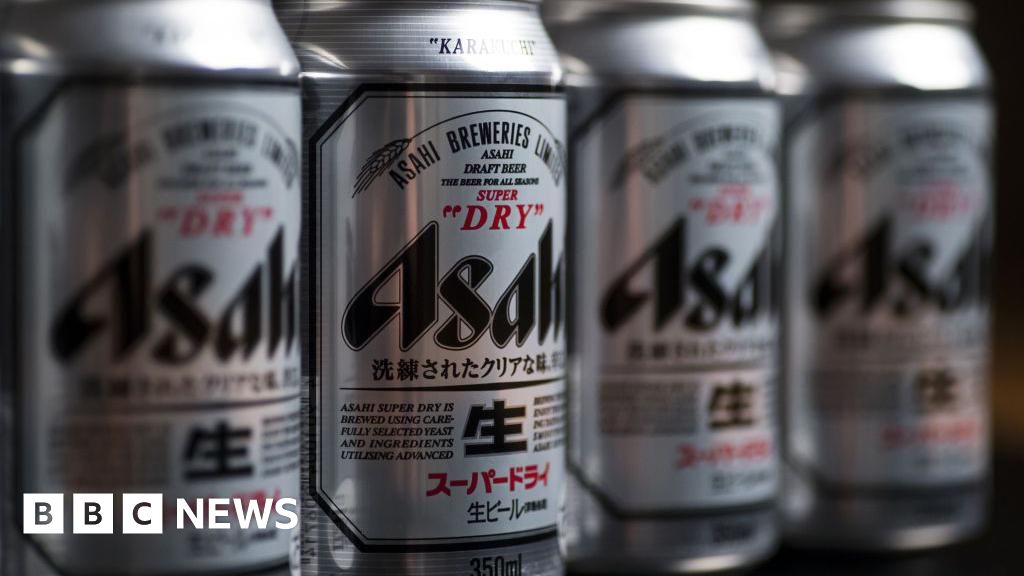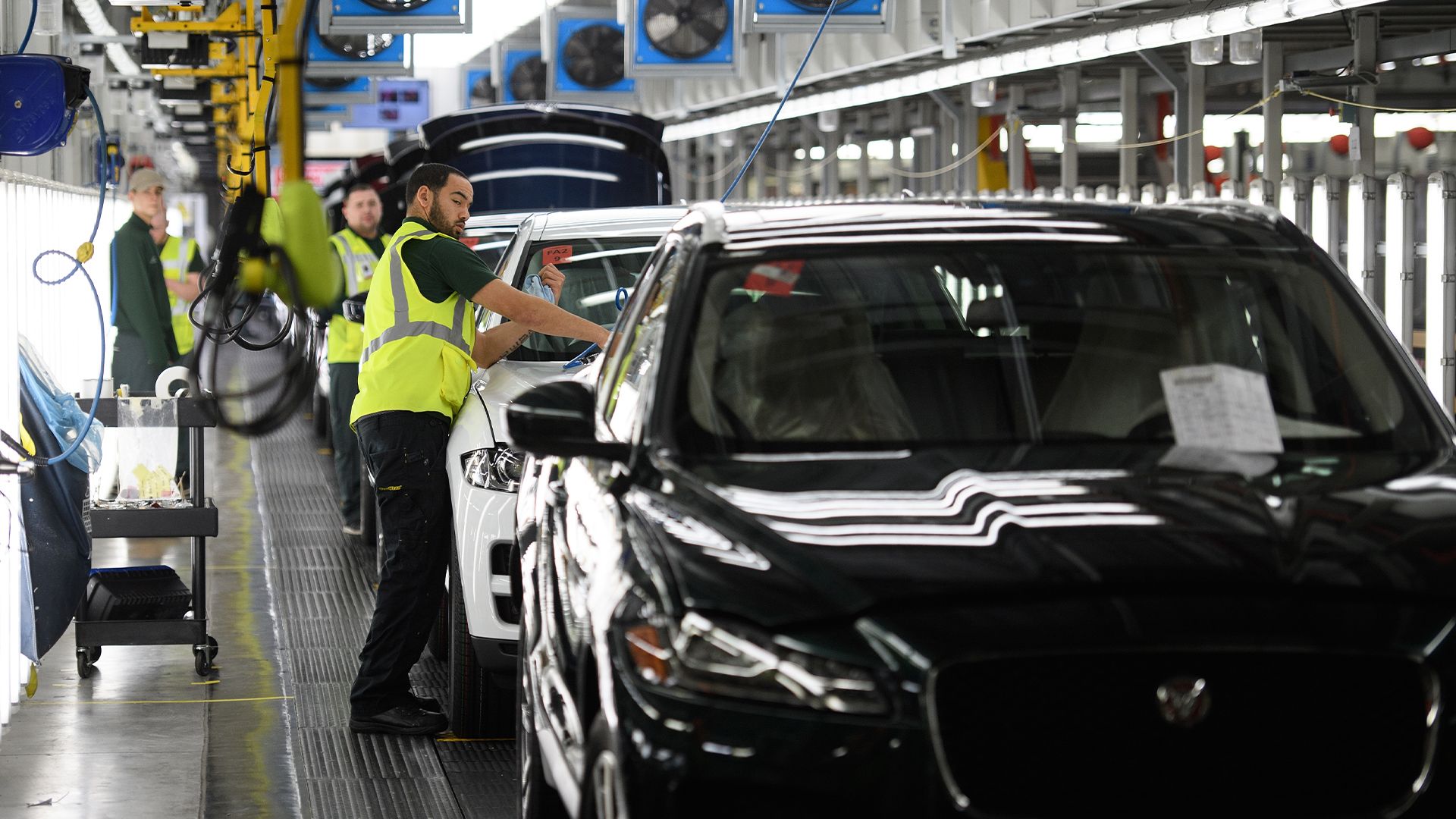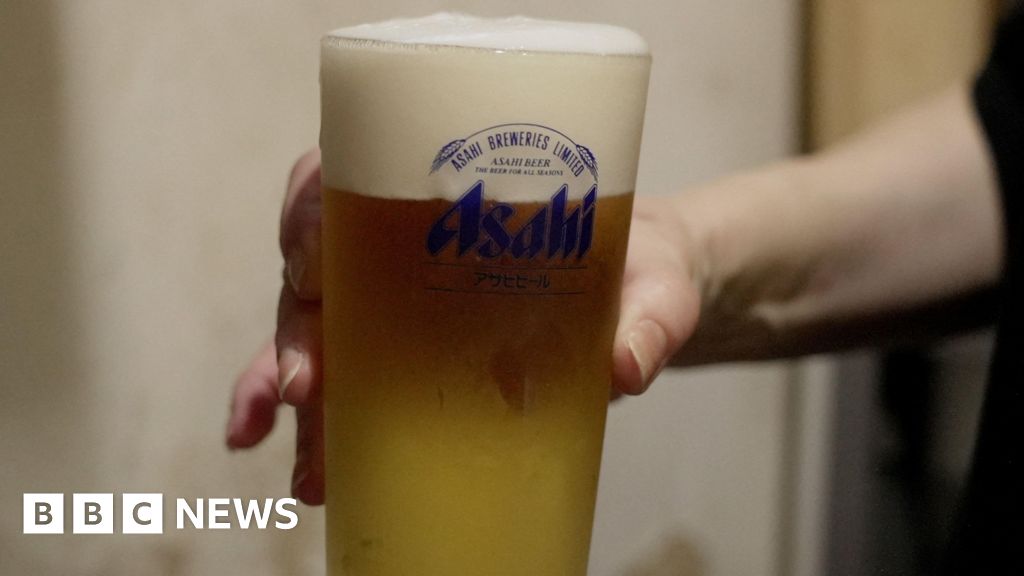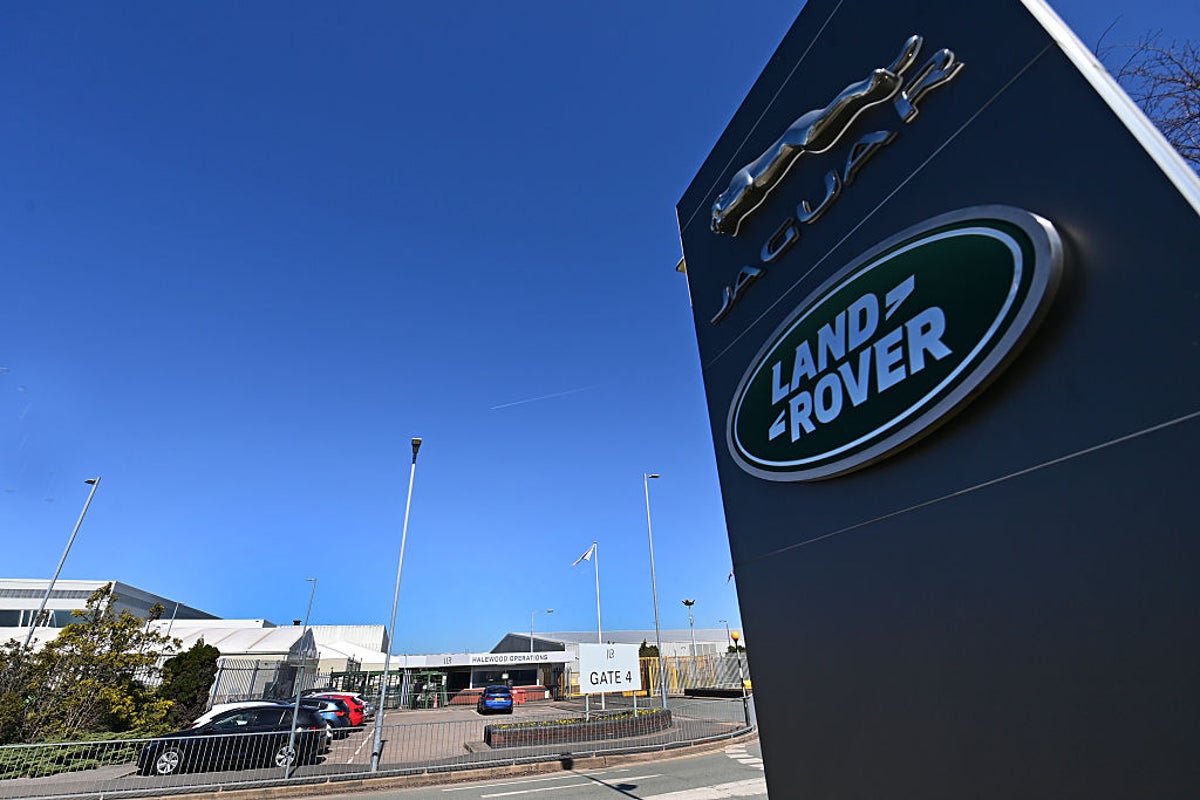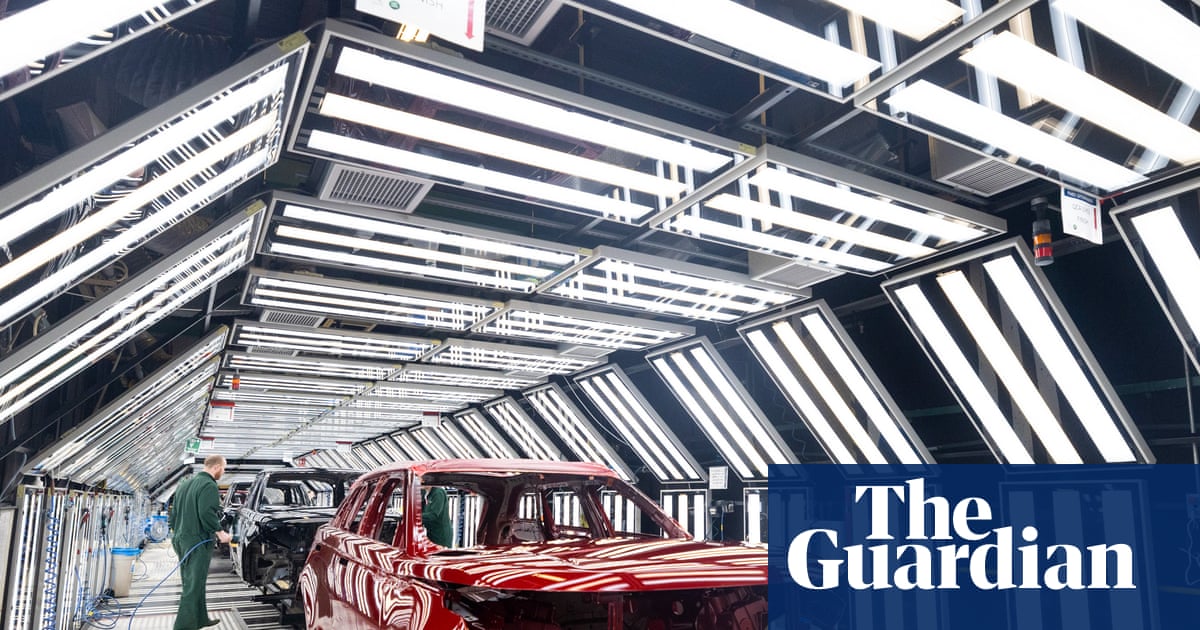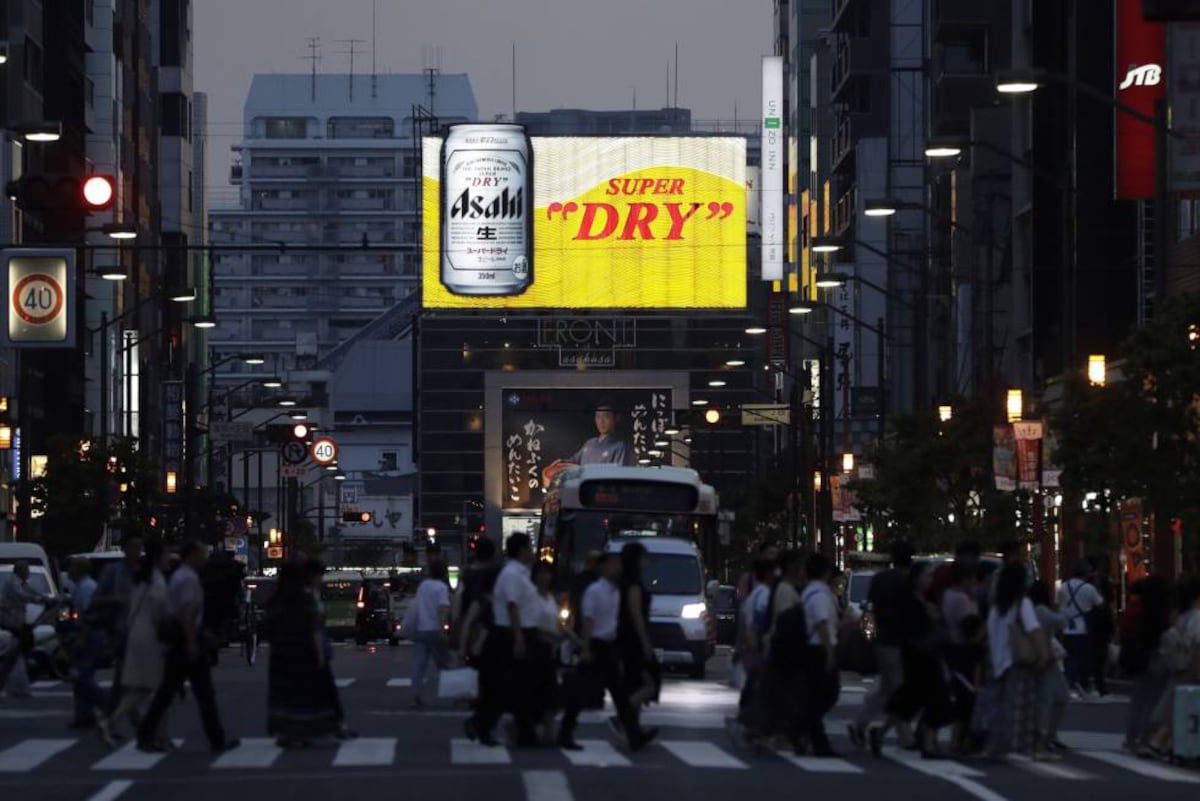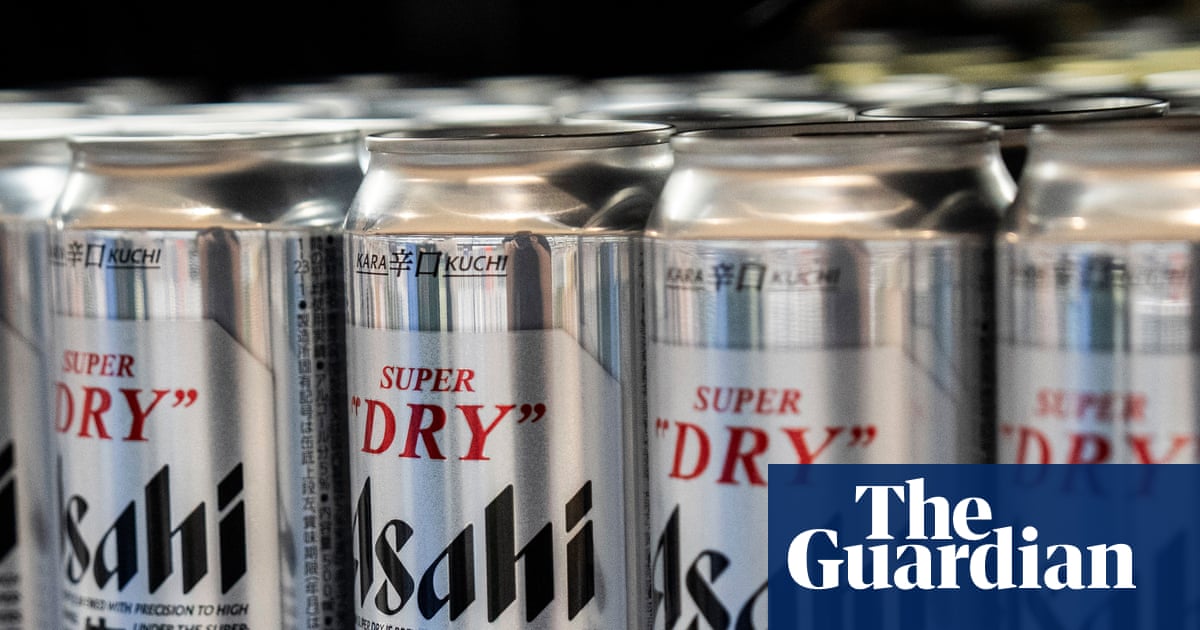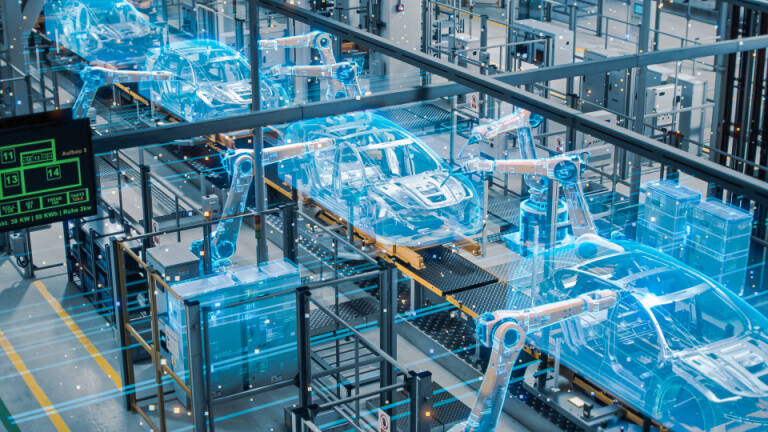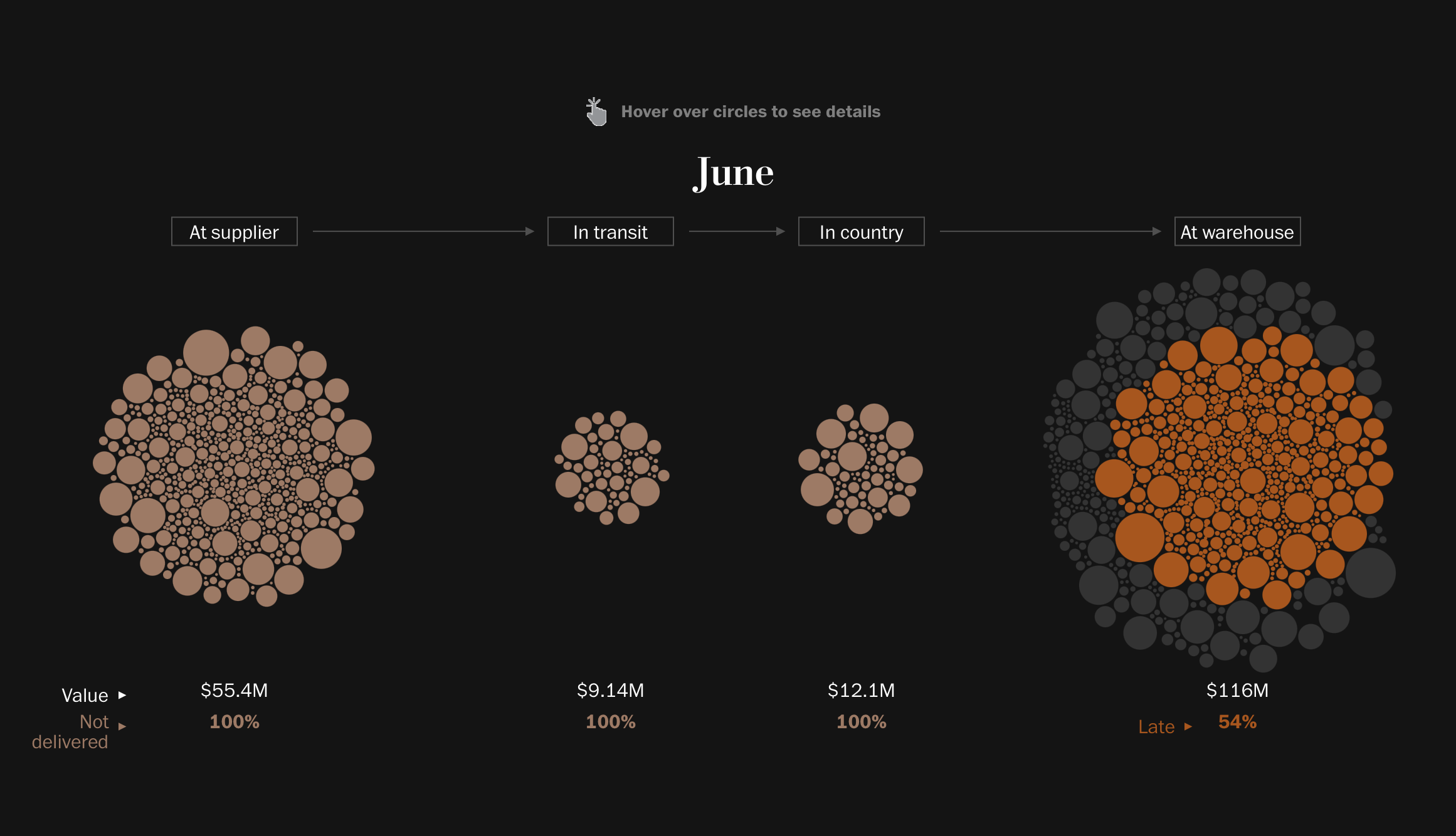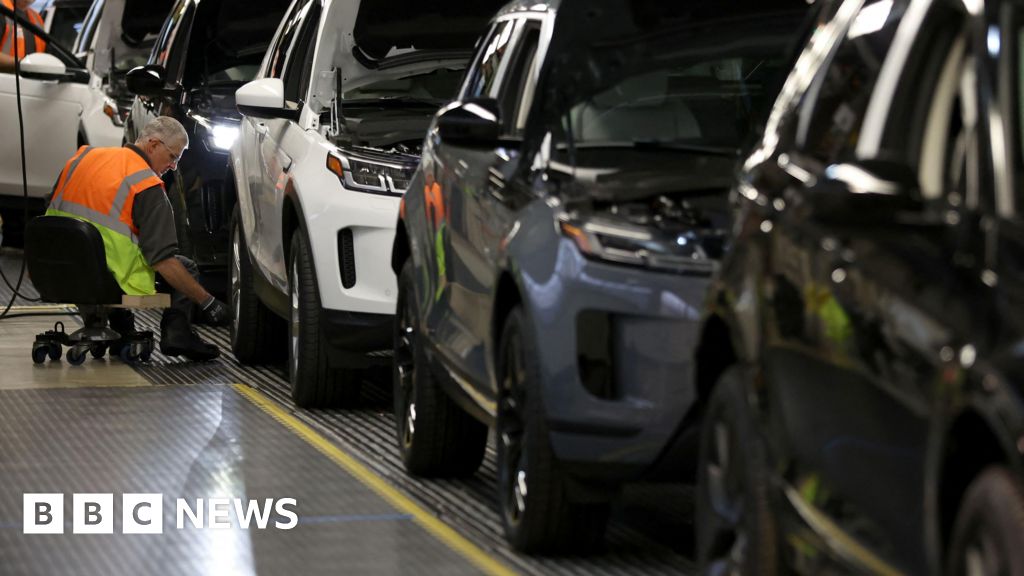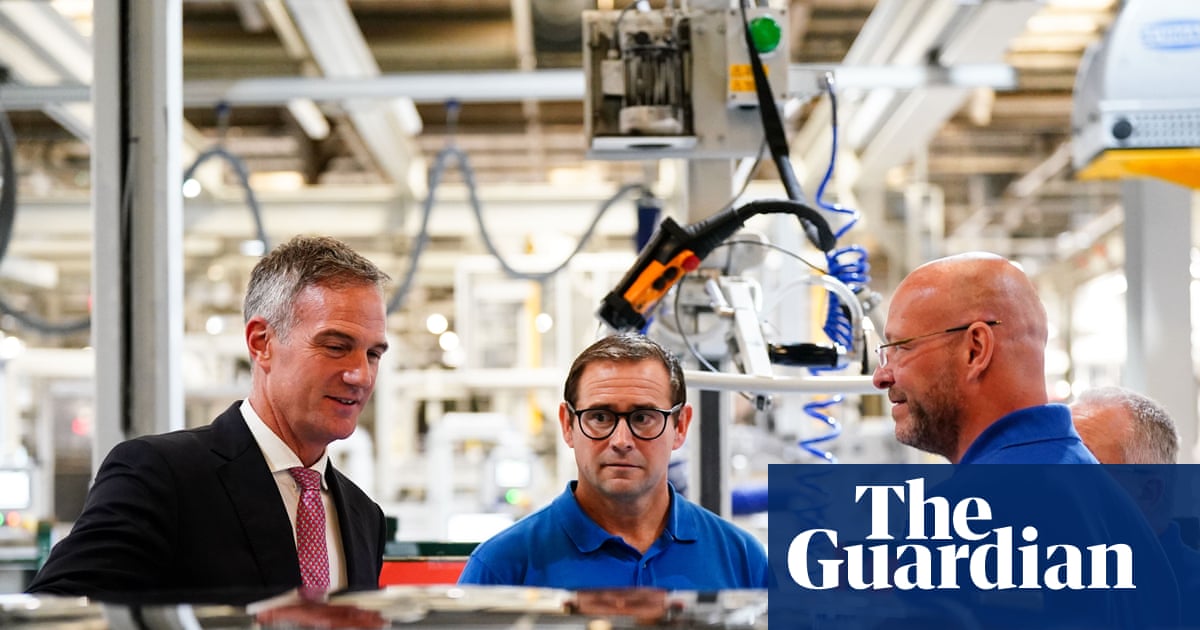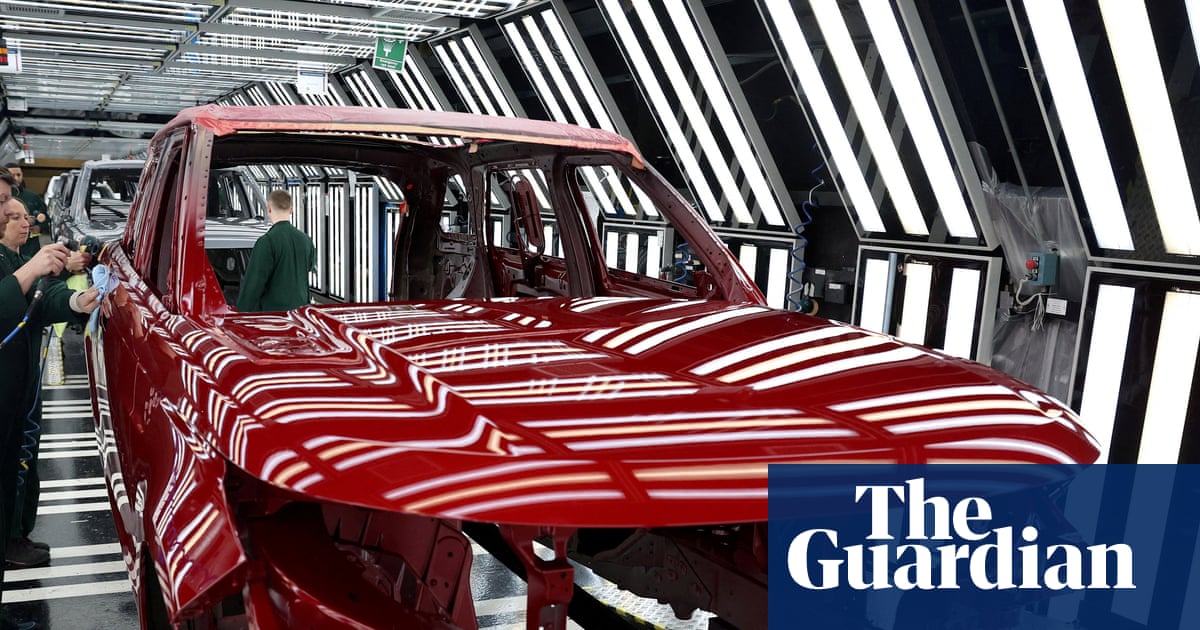#supply-chain-disruption
#supply-chain-disruption
[ follow ]
#cyberattack #jaguar-land-rover #cybersecurity #cyber-attack #economic-impact #ransomware #tariffs #asahi-group
fromThe Local France
2 weeks agoEgg shortages continue in France despite 'chicken boost' plan
Many French supermarkets have empty shelves in the egg section, with retailers blaming bad weather and bird flu for the shortages. In recent weeks many consumers in France have reported egg shortages, with pictures of empty shelves shared on social media. Retailers say that a long-term problem has been made worse by recent outbreaks of bird flu, coupled with the snowy weather that hit France last week, causing widespread transport disruption.
France news
fromBusiness Insider
3 weeks agoInside Saks Fifth Avenue's fight for its life: How 12 months of upheaval left the luxury icon scrambling
The shine, however, masks a retailer under pressure. On Friday, Saks named a new CEO, capping a tumultuous 12 months for the heavily leveraged department store owner. After months of restructurings, lawsuits, missed payments, and broken promises, Saks Global is now facing the possibility of a Chapter 11 bankruptcy. What happens next could have consequences for customers. Brands - some of which haven't been paid in full for over a year - have paused shipments to Saks' stores, and creditors are awaiting news of its financial future.
Fashion & style
fromFortune
1 month agoTrump's tariffs actually slashed the deficit from a record $136.4 billion to less than half that. Here's what else they did | Fortune
Since returning to the White House in January, President Donald Trump has overturned decades of U.S. trade policy - building a wall of tariffs around what used to be a wide open economy. His double-digit taxes on imports from almost every country have disrupted global commerce and strained the budgets of consumers and businesses worldwide. They have also raised tens of billions of dollars for the U.S. Treasury.
US politics
US politics
fromFortune
1 month ago53-year-old customs broker wants to 'Make Trade Boring Again,' saying you won't believe how complex cheese is these days | Fortune
Unprecedented 2025 tariffs and shifting rules have thrown U.S. trade into chaos, forcing customs brokers to translate rapidly changing policy into operational reality.
fromFortune
2 months ago'All over again, taxation without representation': Tea enthusiasts, historians argue tariff regime is the same as the American Revolution | Fortune
Importers of the prized leaves have watched costs climb, orders stall and margins shrink under the weight of President Donald Trump's tariffs. Now, even after Trump has given them a reprieve, tea traders say it won't immediately undo the damage. "It took a while to work its way through the system, these tariffs, and it will take a while for it to work its way out of the system."
US politics
fromTechzine Global
2 months agoCrisis at Nexperia: chip quality cannot be guaranteed
The Dutch manufacturer is facing a crisis following government measures and Chinese export restrictions. The Dutch chip company Nexperia finds itself in a complex situation. On September 30, the Dutch government intervened by taking control of the company. Shortly thereafter, Beijing imposed export restrictions. This disruption is severely affecting the production chain, because although 70 percent of Nexperia's chips are made in Europe, they are packaged and distributed in China.
Miscellaneous
World news
fromwww.dw.com
2 months agoTanzania's instability could harm trade in southern Africa DW 11/04/2025
Dar es Salaam port closure and border shutdowns disrupted supply chains, causing fuel shortages, threatening fertilizer access, raising inflation risk and impairing landlocked African economies.
Miscellaneous
fromwww.theguardian.com
3 months agoEU carmakers days away' from halting work as chip war with China escalates
EU carmakers face imminent production stoppages due to dwindling semiconductor supplies after China's ban on Nexperia chip exports, forcing global sourcing and reserve-stock use.
fromwww.eastbaytimes.com
3 months agoLibrary Lines: Supplier's folding may slightly impact Contra Costa system
Baker & Taylor, one of the nation's largest and longest-serving book and media wholesalers for libraries, recently announced the unexpected closure of its business. B&T has served the nation's library community for nearly 200 years, and the Contra Costa County Library system is just one of many nationwide that have relied on them for decades. The abruptness of this closure presents a significant challenge across the industry.
Books
fromComputerworld
3 months agoUS considers new software export curbs on China, threatening global tech supply chains
The US government is reportedly considering new export controls that could block a wide range of products made with US software from being shipped to China, in what could become one of Washington's most sweeping trade measures to date. If implemented, the move could disrupt global technology supply chains and heighten uncertainty for multinational manufacturers that rely on US-developed software across their operations.
US news
Business
fromLondon Business News | Londonlovesbusiness.com
3 months agoThe FTSE sectors with the highest number of profit warnings - London Business News | Londonlovesbusiness.com
Weaker consumer confidence and heightened policy and geopolitical uncertainty drove a surge in UK-listed companies' Q3 2025 profit warnings, with retailers especially affected.
France news
fromwww.theguardian.com
3 months agoFrench customs reject British shellfish shipments after UK reset' deal with EU
A Devon mussel exporter lost £150,000 after French customs rejected three EU-bound mussel shipments, forcing destruction of loads and causing unpredictable, costly trade disruption post-Brexit.
Business
fromLondon Business News | Londonlovesbusiness.com
5 months agoUK mid-market outperforms expectations - London Business News | Londonlovesbusiness.com
UK mid-sized businesses outperformed 2025 growth targets, driven by greater finance access, AI adoption, resilient demand, productivity gains and sustained capital investment.
Bicycling
fromElectric Bike Reviews, News, & Testing
5 months agoRiese & Muller Pauses E-Bike Imports, Lectric launches XP Trike2 750, Puckipuppy's Full-Sus Rottweiler E-Trike | TWR Ep 46
New U.S. steel tariffs threaten higher e-bike import costs, prompting shipment pauses and raising prices while brands launch updated e-trikes.
fromwww.mercurynews.com
5 months agoMajor alcohol distributor to leave California in September
On Sept. 2, the Republic National Distributing Co. (RNDC) will complete its departure from the largest liquor market in the United States: California. The withdrawal of one of California's largest alcohol distributors is bound to affect consumers negatively. The initial impact is already being felt by liquor retailers, liquor producers, bars and restaurants. At least half of our book came from RNDC, said Alex Tarantino, the general manager and liquor buyer for the Buckeye Roadhouse in Mill Valley.
Food & drink
fromwww.aljazeera.com
5 months agoHow will Trump's semiconductor tariffs affect the global chip industry?
The US president has threatened to impose a tariff of up to 300 percent on imports of semiconductors. United States President Donald Trump has threatened to impose tariffs of up to 300 percent on semiconductor imports, with exemptions for foreign companies that commit to manufacturing in the US. Trump has cast the proposed tariff as a way to drive investment to the US, but experts say it could also disrupt global supply chains and even penalise companies already making chips in the US.
US politics
[ Load more ]
